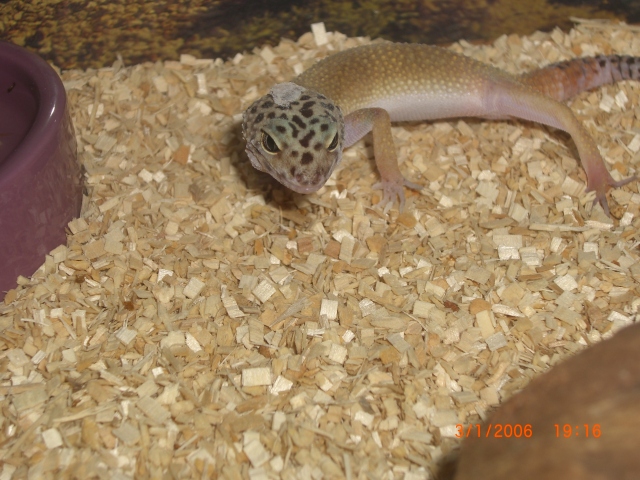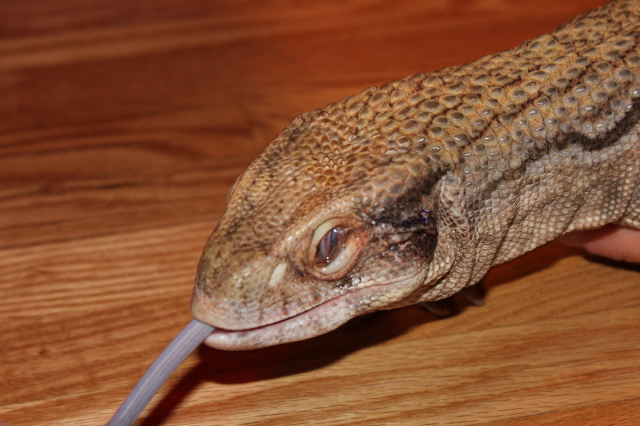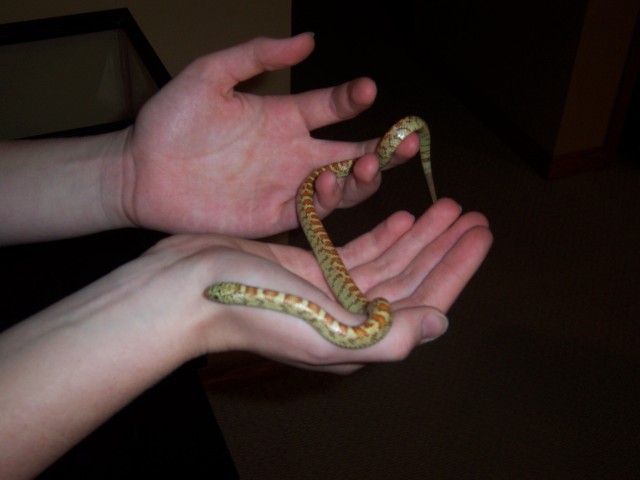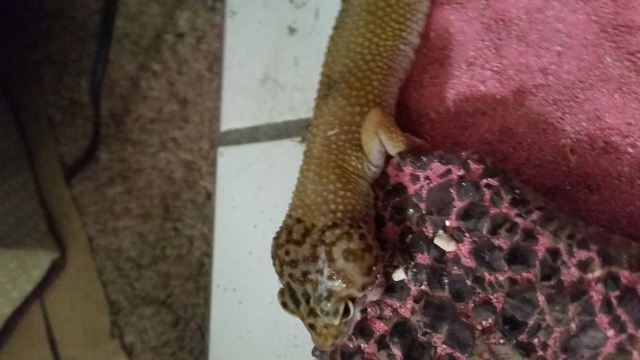QuestionQUESTION: Hi Diane, how are you? Sorry to bother you once more. well my geckos still aren't eating and i was wondering what are some ways to see if my geckos have parasites or not? How do they get parasites and is it possible for one to get it even if it is not wild bred? Do you think the tail wound may lead to parasites as they are still not eating. I am getting a bit worried. What should i do? My geckos don't seem to be getting that skinny. Lastly, is there a way to lower their stress level? Thanks so much for your help. And i thank you for helping me out. I am also sorry for my question overload as i know you are so busy. Sorry to bother you once more though. Thanks.
ANSWER: Hi Chris,
All reptiles have internal parasites in their gut. They actually need them for proper digestion. Many times that "load" can become too high which is what can cause the problem. Generally signs of a heavy load of internal parasites( or coccodia) are loose stools, bloated look and when extremely heavy loads, the reptile can be lethargic. Causes of the overload can just happen, but stress is one factor that seems to also be able to cause it. The only way to know how high a load the reptile is carrying is to have a fecal check (stool) done by a vet. They mix a small amount of the fecal matter with a solution and will spin it down and take the a drop of what floats to the top of the tube and place it on a slide and put it under a microscope. The don't have to be wild bred, and chances are if one would have more than needed internal parasites, the other would also.
The tail wound will not cause parasites but the tail wound can cause infection.
When a gecko doesn't eat, it takes quite a while for them to show signs of loosing weight due to the nice plump tail.
Causes for not eating....
stress... giving each leo their own tank may help as its breeding season and this causes tons of stress.
gravid...forming eggs...as the eggs grow, there is less room for as much food, but generally they only stop eating a day or two before laying eggs.
too hot or too cool of temperatures....double check all your temps
some leos do go into a slowing down period called brumation in preparation for breeding. This is usually in the colder months.
Blockages from dehydration, improper sized insects, substrate, parasites will cause them not to eat and be lethargic.
***To Lower stress....I would give them each their own tank and set up, double check all your temperatures and try offering other insects such as a few wax worms to entice them. Only a few though as wax worms are too high in fat. Try some super worms (if the leos are large enough) or meal worms or crickets...something different in their menu. Remember, they are nocturnal and you don't see what is going on at night as far as one being aggressive, trying to breed, or other alpha happenings...that's why the separate tanks need to be tried. Plus, with the tail injury that leo is more at risk for being attacked, as with any animal with a weakness.******
Unless the leos act ill in some way, and do not loose weight in a short time, going without eating for even a week or two is not abnormal. The key is to know if they are acting normal and to be on top of any weight loss that is rapid.
I would get them each into their own tank and give it a few days to see how it goes. If there is weight loss, they act lethargic, etc then a vet visit is needed to find out what is going on with them.
---------- FOLLOW-UP ----------
QUESTION: Hi again, today i noticed my leo (female) licking her anus. It was the vent by her tail. Is this normal? Thanks so much for your previous response, i brought it to my vet and they said she was clear of "heavy" parasites. But is the licking normal? Thanks.
AnswerHi Chris,
Does she possibly have some stuck shed there? I'm wondering if also the male has been trying to breed her and has irritated her vent area. If that is the cause, you may see some redness in that area.
To solve many problems, giving them each their own tank will work.
There are risks if leos are bred too young to both the male and the female. Risk of henipene prolapse for him, and egging problems for her.

 Sorry to keep bothering.
QuestionHer left leg
QUESTION: Tracie Kretzchmar
Sorry to keep bothering.
QuestionHer left leg
QUESTION: Tracie Kretzchmar
 Mediterranean Gecko
QuestionQUESTION: I have had a Mediterranean gecko for
Mediterranean Gecko
QuestionQUESTION: I have had a Mediterranean gecko for
 Savannah Monitor eye issue
Question
Savs Eye Savs Eye
Savannah Monito
Savannah Monitor eye issue
Question
Savs Eye Savs Eye
Savannah Monito
 Baby hypo Kingsnake wont eat
QuestionThis is my snake when
QUESTION: I under
Baby hypo Kingsnake wont eat
QuestionThis is my snake when
QUESTION: I under
 gecko
Questiongecko
QUESTION: Hello Tracie yes my geck
gecko
Questiongecko
QUESTION: Hello Tracie yes my geck